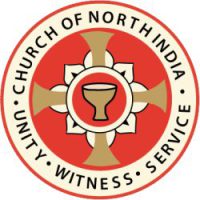Introduction:
The Church of North India (CNI) is a vibrant and significant Christian denomination that embodies the spirit of unity and diversity. Established through a union of various Protestant Christian traditions, the CNI has played a crucial role in fostering community, spirituality, and social welfare across the northern regions of India.
Historical Background:
The roots of the Church of North India can be traced back to the 1970s when several major Christian denominations, including the Methodist Church, the Church of the Brethren, the Disciples of Christ, the Church of India (Anglican), and the Presbyterian Church, joined forces to create a united ecclesiastical entity. This historic union aimed to overcome denominational divisions and create a more unified Christian presence in the region.
Unity in Diversity:
One of the defining features of the Church of North India is its commitment to embracing diversity. The CNI brings together a rich tapestry of traditions, liturgies, and theological perspectives. Worship services in CNI congregations may incorporate elements from Anglican, Methodist, Presbyterian, and other traditions, reflecting the diversity of its member denominations. This inclusive approach allows the CNI to cater to a broad spectrum of worshippers, fostering a sense of unity amid diversity.
Organizational Structure:
The Church of North India operates on a decentralized structure that empowers local congregations and regional councils. The church is divided into dioceses, each headed by a bishop, and these dioceses are further grouped into regional councils. This organizational framework enables the CNI to address local needs effectively while maintaining a broader sense of unity.
Social Engagement and Service:
Beyond its religious functions, the Church of North India is actively involved in various social and humanitarian initiatives. Inspired by Christian principles of compassion and service, the CNI engages in education, healthcare, and community development projects. Many CNI institutions, such as schools and hospitals, play a vital role in addressing the holistic needs of communities.
Interfaith Dialogue:
Recognizing the diverse religious landscape of India, the Church of North India is actively engaged in interfaith dialogue. The CNI seeks to build bridges of understanding and cooperation with followers of other faiths, contributing to the overall harmony and well-being of society.
Challenges and Opportunities:
While the Church of North India has made significant strides in promoting unity and serving communities, it also faces challenges. Navigating cultural and religious diversity, addressing social issues, and adapting to a rapidly changing world are ongoing tasks. However, these challenges also present opportunities for the CNI to grow, evolve, and continue contributing positively to the lives of its members and the wider society.
Conclusion:
The Church of North India stands as a testament to the power of unity and diversity within the Christian faith. Through its inclusive approach, commitment to social service, and engagement with broader society, the CNI exemplifies the transformative potential of faith communities working together for the greater good. As the Church of North India continues its journey, it remains a source of inspiration for those seeking to bridge divides and build a more compassionate and inclusive world.



Be First to Comment